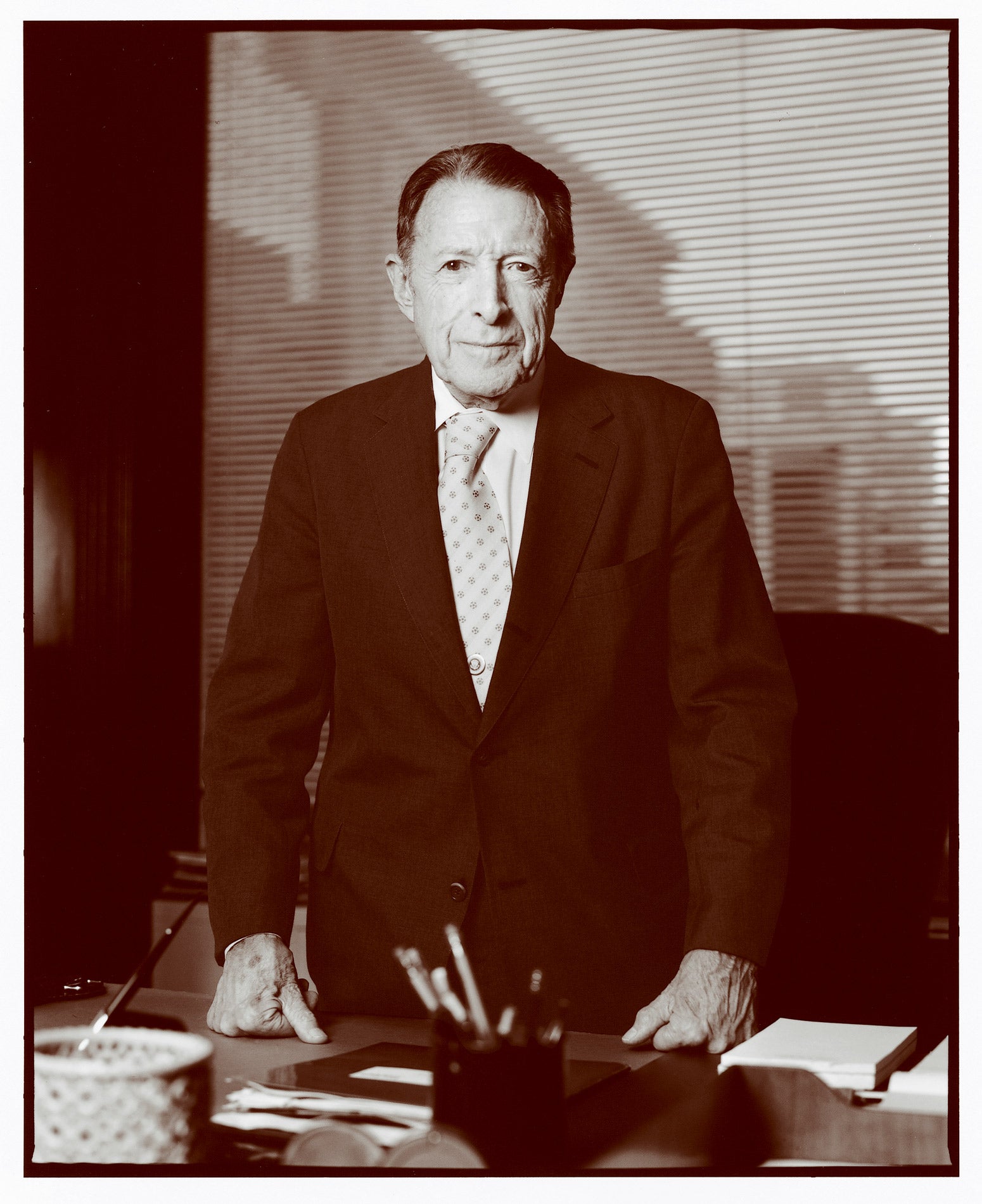Caspar Weinberger is, in many ways, the modern-day author of the Art of War. His Weinberger Doctrine, which outlines the appropriate use of combat forces (only in cases of vital national interest, with clearly defined objectives, and as a last resort–but when you fight, fight to win), has been invoked from Grenada to the Persian Gulf. As secretary of Defense, he helped prepare the country for war, which, in the end, he says, maintained the peace.
“I regret to say that a number of things that were offered while I was practicing law have always seemed more interesting than practicing law.”
“Globalization is here, and it’s going to increase in this kind of world. Get ready for it. People who don’t are going to be in serious trouble.”
“I was not ever working toward becoming secretary of Defense. In fact, I was as astounded as anybody. I have, however, one thing strongly in my favor. And that was that I had enlisted as a private in the Army infantry in September 1941 and later served as an officer in the war [discharged as captain, 1945]. Many of my predecessors and successors have not had that, and I think it gave me a whole different approach and understanding of the separate community that is the military.”
“People keep saying, ‘But what is enough and how much is enough [in the military budget]?’ And the only answer to that is, ‘If you don’t have enough, you’ll never know it until it’s too late to do anything about it.'”
“Obviously we didn’t want to start a war. We didn’t want to pick up any more territory, but we needed to be strong enough so that the Soviets would never believe they could defeat us in a war.”
“We want to believe that things are all right. People in democracies don’t like to spend money on defense. They don’t like the concept of war.”
“Peace alone is not enough.”
“It’s very hard for a democracy to remain a democracy unless you have someone who is pushing very hard to have adequate military capability.”
“I think we should know a great deal more about all the countries of the world. You have a . . . it’s not so much isolationism–it’s a kind of an indifference, which is sort of worse. We’re very blessed by nature, we have huge resources, we’re self-sufficient in a number of areas, but certainly not all, and we haven’t cared enough.”
“I’m a natural optimist. I was born in California, and our constitution requires us to be optimistic.”
“Ultimately, the more we know, the better we’ll be able to prepare for whatever happens.”
“You have to recognize that there are just some things that you can’t do. The trouble with Americans is, they simply can’t believe anybody is evil. And there are evil people, and they have to be dealt with.”
“When President Reagan talked about the Evil Empire, it was attacked by people who said he’d undone years of patient diplomatic effort. And he said he would like to see what years of patient diplomatic effort had secured for us–not much.”
“If you go to war, then you have to go to war in sufficient strength to enable you to win.”
“It’s not a bad idea to challenge the conventional wisdom. I learned that the conventional wisdom frequently is not very wise and does need to be challenged.”
“The Soviet missiles would take 18 minutes to cross the oceans. I was always amused when some angry people of pacifist nature used to say to me: ‘But you don’t have any idea what it’s like to be a target of one of these things.’ As a matter of fact, I had a better idea than most, because the principal target, the zero point for all Soviet missiles, was the center courtyard of the Pentagon. And you’re aware of that. It doesn’t paralyze you or anything of that kind, but it’s not a stress-free occupation.”
“You should participate in politics and government. And you’ll have many difficult times and difficult days, and it’s going to be hard to accomplish some things and sometimes you can’t accomplish them at all, and there’ll be all kinds of obstacles. But if you don’t make the effort, well, we won’t be able to keep the kind of government we all want.”
“I went to many of the funeral services and talked with the families of troops that were lost. And it’s a very painful experience. It’s one that makes you increasingly aware of the importance of using American troops carefully and having in mind that responsibility for their care and safety is yours. And if this usually makes you more cautious about using them, so be it.”
